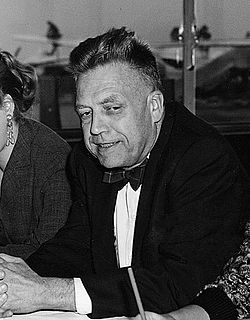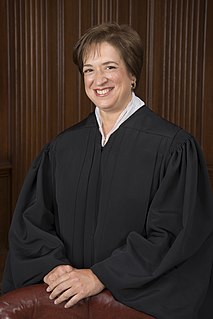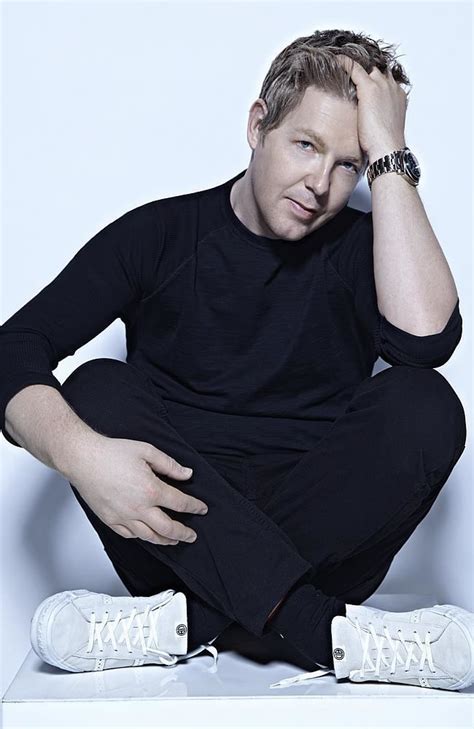A Quote by Andrew Sullivan
In many ways, my attachment to human freedom was completely compatible with my right to live freely as a homosexual.
Quote Topics
Related Quotes
The fundamental rights of [humanity] are, first: the right of habitation; second, the right to move freely; third, the right to the soil and subsoil, and to the use of it; fourth, the right of freedom of labor and of exchange; fifth, the right to justice; sixth, the right to live within a natural national organization; and seventh, the right to education.
For us democracy is a question of human dignity. And human dignity is political freedom, the right to freely express opinion and the right to be allowed to criticise and form opinions. Human dignity is the right to health, work, education and social welfare. Human dignity is the right and the practical possibility to shape the future with others. These rights, the rights of democracy, are not reserved for a select group within society, they are the rights of all the people.
In fact, it's the greatest threat to liberty of all kinds, whether it is freedom of religion, whether it is freedom of speech, whether it is freedom of the press, whether it is freedom of association, all of the rights that are enshrined in the First Amendment are threatened by the active, aggressive homosexual lobby and the homosexual agenda.
If all persons with any trace of homosexual history, or those who were predominantly homosexual, were eliminated from the population today, there is no reason for believing that the incidence of the homosexual in the next generation would be materially reduced. The homosexual has been a significant part of human sexual activity since the dawn of history, primarily because it is an expression of capacities that are basic in the human animal.
If, as I believe, the ends of men are many, and not all of them are in principle compatible with each other, then the possibility of conflict - and of tragedy - can never wholly be eliminated from human life, either personal or social. The necessity of choosing between absolute claims is then an inescapable characteristic of the human condition. This gives its value to freedom as Acton conceived of it - as an end in itself, and not as a temporary need, arising out of our confused notions and irrational and disordered lives, a predicament which a panacea could one day put right.
I think people are great in many different ways. So, I think some justices are great because they have extraordinary wisdom, they have an understanding of how to apply the law in their times in a way that's completely consistent with the text of the law and the purposes of the law, and in a way that's completely right for the times in which they live in.
The constitutions of most of our States assert, that all power is inherent in the people; that they may exercise it by themselves, in all cases to which they think themselves competent, or they may act by representatives, freely and equally chosen; that it is their right and duty to be at all times armed; that they are entitled to freedom of person, freedom of religion, freedom of property, and freedom of the press.
I don't conjure up ways of denying people freedom. I don't sit around and examine what people do that I don't like and try to figure out ways to get them to stop it, unless we're talking about lawbreakers, of course. But I'm a freedom, liberty, live and let live kind of guy. I might not approve of or like what people do, but have at it.
So there’s a kind of resurgence of the sense of freedom and spontaneity in nature. From nature being bound into a rigid, deterministic model, freedom, spontaneity and openness are emerging once again. It’s now recognized the future is open, not determined by the past. And this is true in many realms, the astronomical realm, the human realm, the meteorological realm in many ways.
This is the whole secret of non-attachment: live in the world, but don't be of the world. Love people, but don't create attachments. Reflect people, reflect the beauties of the world - and there are so many. But don't cling. The clinging mind loses its mirrorhood. And mirrorhood is Buddhahood. To keep that quality of mirroring continuously fresh is to remain young, is to remain pure, is to remain innocent. Know, but don't create knowledge. Love, but don't create desire. Live, live beautifully, live utterly, abandon yourself in the moment. But don't look back. This is the art of non-attachment.

































